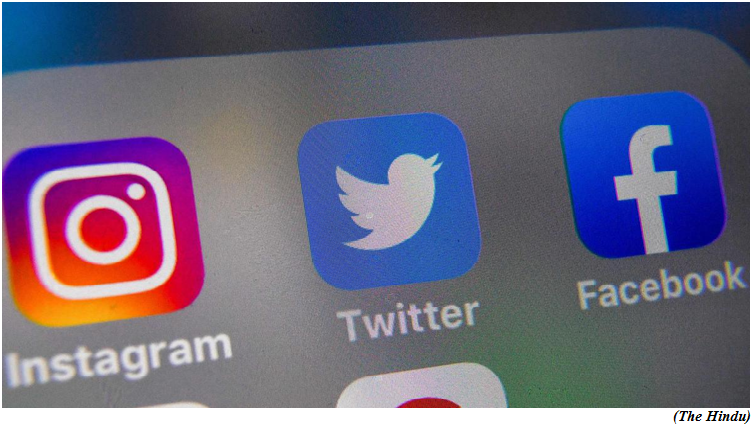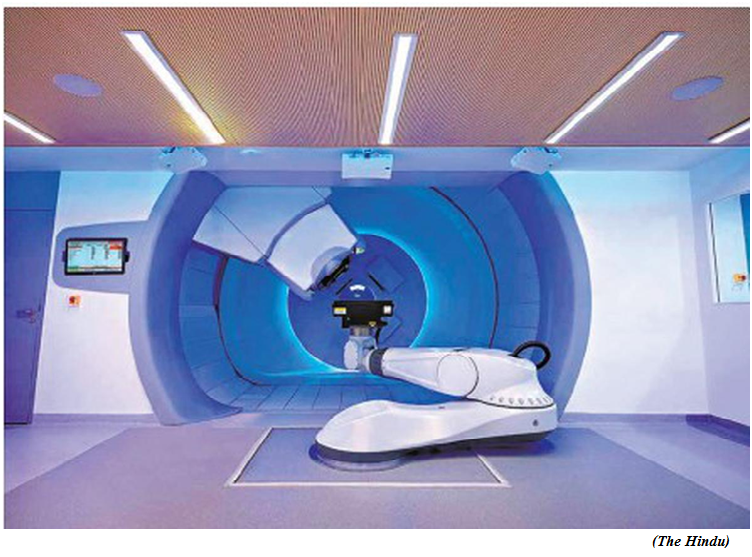Portal opened for complaints against decisions of social media platforms (GS Paper 2, Governance

Why in news?
- The Ministry of Electronics and Information Technology recently launched the Grievance Appellate Committee (GAC) portal under the IT Rules, 2021.
Details:
- It allows people dissatisfied with resolution of complaints to social media companies on content takedown requests, to be heard by one of the three committees constituted by the government.
- This marks a shift in how social media content is moderated in India.
- The Information Technology (Intermediary Guidelines and Digital Media Ethics Code) Rules, 2021 were amended in 2022 to require social media companies to “respect all the rights accorded to the citizens under the Constitution, including in the articles 14, 19 and 21,” signalling that social media platforms may now have to allow speech that is not allowed on their platforms, but are otherwise legal to express in public.
Background:
- Three committees were formed in January to receive complaints to put these amendments into action. The website of the GACs is now accepting appeals from the public.
- The IT Rules already require platforms to have a process for accepting complaints against content and appeals against takedowns from users; companies’ decisions in response to these appeals, though, will now ultimately be subject to the GACs’ orders. India is not the only country moving away from treating platforms such as Facebook and Twitter as mere private “intermediaries”.
Way Forward:
- The IT Ministry has indicated that it is working on a “Digital India Bill” to give a firmer statutory backing to the IT Rules.
Proton beam therapy out of reach for many with cancer
(GS Paper 3, Science and Tech)
Why in news?
- Cancer patients in India face twin challenges when it comes to accessing proton beam therapy (PBT): not enough facilities offering the treatment and cost running into many lakhs of rupees.

PBT:
- The PBT is considered a viable alternative to radiation for treating solid tumours, especially head and neck cancers.
- Unlike radiation which uses X-rays, the PBT uses protons to tackle cancer. While radiation can prove toxic to the whole body, protons can destroy cancer cells precisely by targeting tumours, thus saving adjoining organs.
- This has proved useful in the cases of young women whose ovaries and reproductive function could be salvaged through the therapy.
Challenges:
- Apollo Hospital is the only centre in the whole of South and West Asia offering the PBT. With the Indian government shelving a project to install a PBT unit in the All India Institute of Medical Sciences (Jhajjar), there is a huge unmet need for access to the treatment.
- Another project that is yet to see the light of day is the proposed PBT unit at the National Hadron Beam facility of Tata Memorial Hospital in Navi Mumbai. The foundation stone for the project was laid by former Prime Minister Manmohan Singh in 2014.
Skewed ratio:
- Approximately 40,000 children in India are diagnosed with cancer every year and up to 1,400 of them would potentially benefit from the PBT.
- Currently there are 42 PBT machine installations in the U.S., followed by Europe (35), Japan (26), China (seven), Taiwan (three) and South Korea (two), while India has only one.
- In the U.S., each unit of proton beam therapy serves a population of 7.9 million, while in India there is one unit for 1,412 million people.
High cost:
- The PBT unit in the AIIMS was meant to benefit poor patients as the treatment would have been free of cost. Currently, Apollo Hospital has been able to reduce the cost from nearly ₹1.2 crore (as charged in the U.S.) to between ₹5 lakh and ₹30 lakh.
- But setting up a PBT centre is fraught with infrastructural and regulatory challenges stemming from safety concerns from the Department of Atomic Energy. A PBT machine is a huge contraption, up to three storeys tall and costs nearly ₹500 crore.



